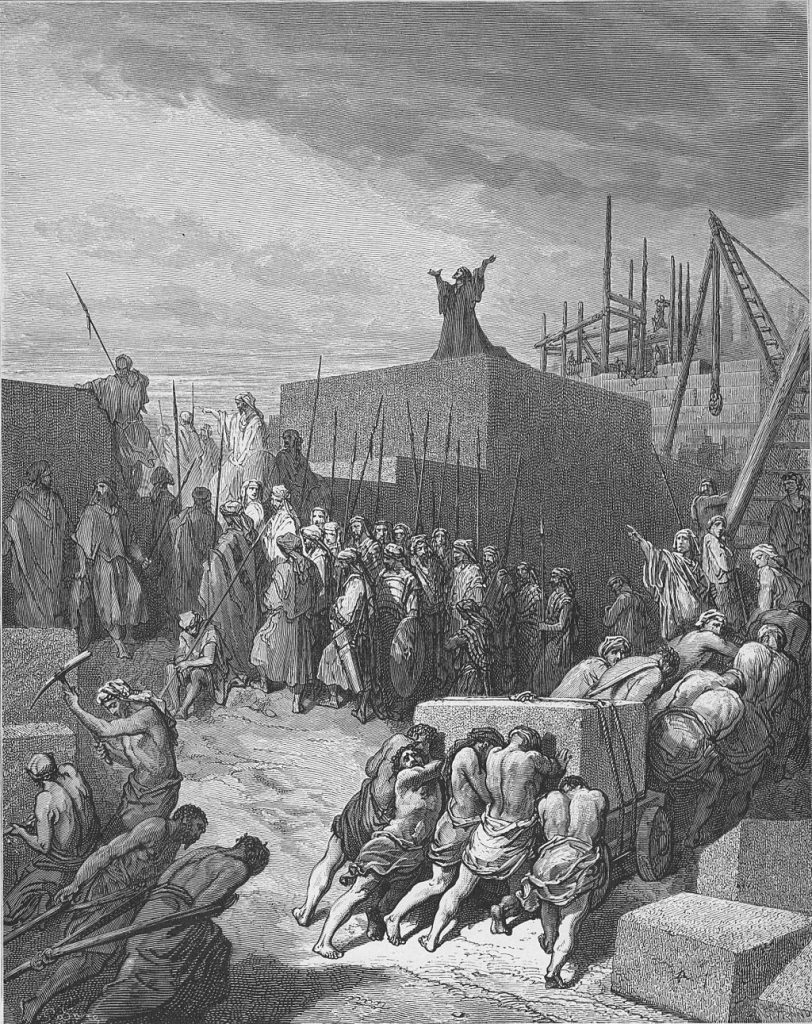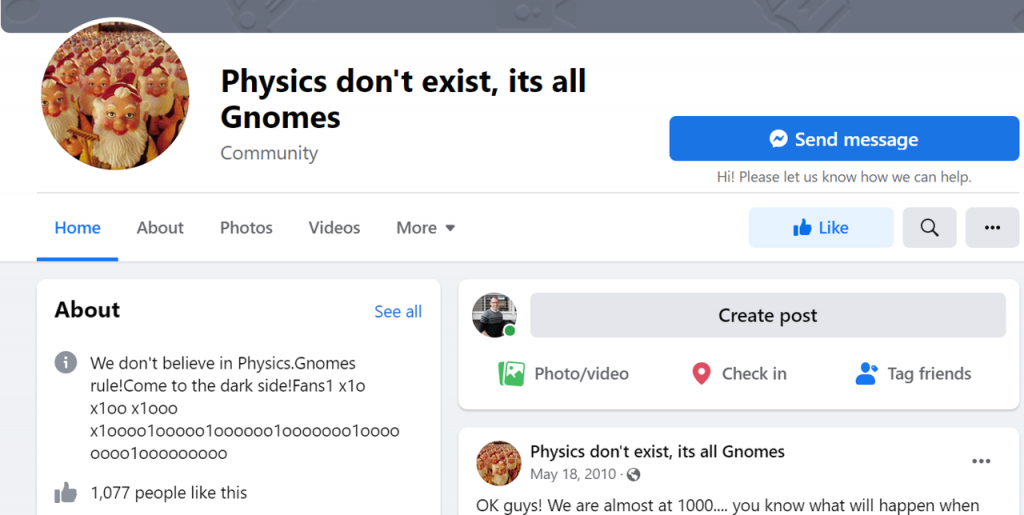For thus saith the Lord of hosts; Yet once, it is a little while, and I will shake the heavens, and the earth, and the sea, and the dry land; And I will shake all nations, and the Desire of all Nations shall come: and I will fill this house with glory, saith the Lord of hosts.
Haggai 2:6
O Come, Desire of Nations, Bind // All peoples in one heart and mind
Bid envy, strife, and quarrels cease //Fill all the world with heaven’s peace
Rejoice! Rejoice! Emmanuel // Shall come to Thee O Israel.
Bind all peoples in one heart and mind. What a vision.
In a divided world – a world of Ukrainians vs. Russians, Israelis vs. Palestinians, progressives vs. conservatives – most of us long for something, or someone, who can bring people together. A leader who will end the quarreling and strife. A visionary who will bring heaven’s peace on earth.
These beloved lyrics above (verse seven of O Come, O Come, Emmanuel ) are based on a stunning prophecy from the Old Testament’s book of Haggai.
The context: About 50 years after a group of Jewish men and women were taken captive to Babylon, the region’s new ruler, Cyrus of Persia, allowed many of these exiles to return to Judah. But when they got back, the released Jews discovered that the previous decades had been unkind to their homeland and to the people who were living there.
A lot of work needed to be done. So a new generation of leaders – people like Nehemiah – led important building projects. Ezra and other spiritual shepherds concurrently aimed to restore obedience to the Bible and faithfulness to God.
And over time, things got better. Sacrifices and worship resumed. Gates were repaired. Debris was cleaned up, and people started to rebuild their homes.
But one big problem remained. Jerusalem’s temple was still in ruins.
And God, it turns out, had a problem with that. So God sent Haggai to motivate the people to restore their church.
In chapter 1. Haggai encourages the people to stop hanging so much shiplap in their own bathrooms. It would be better, he preaches, to leave the surround-sound wiring and the flowering shrubberies to the side, and to direct their energies on the restoration of the temple.
And under the leadership of a man named Zerubbabel, they focused the efforts on temple reconstruction.

But in chapter 2 of Haggai’s book, a different kind of crisis grows up.
The people have done much. They have replaced the ceiling tile in the Fellowship Hall, they have scoured the kitchen sinks with Comet, they have hung the obligatory picture of a man praying by a loaf of bread in the basement hallway. But when they stop for a minute to stand back, they’re disappointed.
Why? It’s because as well as the rebuilding work has gone, the temple of Zerubbabel pales in comparison to the one they used to have. This church is smaller, simpler, and far less ornate than the great cathedral built by King Solomon.
So – on God’s behalf – Haggai says to the people, “It’s true: This isn’t the same sized building as it once was. But make no mistake about it, my Spirit is in this place, my commitment to you is clear, and I want you to keep at it.”
And then God drives the point home:
For thus saith the Lord of hosts; Yet once, it is a little while, and I will shake the heavens, and the earth, and the sea, and the dry land; And I will shake all nations, and the Desire of all Nations shall come: and I will fill this house with glory, saith the Lord of hosts. The silver is mine, and the gold is mine, saith the Lord of hosts. The glory of this latter house shall be greater than of the former, saith the Lord of hosts: and in this place will I give peace, saith the Lord of hosts.
HAGGAI 2:6-9
And there it is: our line from O Come, O Come, Emmanuel. The Desire of all Nations.
But with it arrives a pretty important question: What is the “Desire” referring to? It’s worth noting that some translations leave the “d” and the “n” of “desire of nations” in the lower case; the King James, as above, capitalizes those words.
And therein lies the question that has divided Bible interpreters for a long time: Is “desire of nations” meant to be proper noun or a common noun? Do those words refer to a human being- in which case they should be capitalized – or do they refer to something impersonal?
And when I say that scholars are divided on how to understand verse 7, I mean to tell you that this translation has split some of the greatest thinkers in church history. No less than Martin Luther and John Calvin disagreed on it.
Where you land on this debate all comes down to what you think the word hemdat means. That’s the Hebrew word for “desire.” The hemdat of all nations.
Calvin and scholars who follow him believe that hemdat is best translated as “treasure”. The hemdat of nations, they say, signifies the wealth of the peoples of the earth. It’s a description of their tributes and taxes.
If Calvin is right, then Haggai is prophesying that the nations will someday bring their silver and gold into the city. When that happens, the glory of the temple will actually surpass the glory of Solomon’s building. And there are some pretty good reasons, grammatically speaking, to read the phrase like that.
On the other hand, here’s Luther’s perspective: The German Reformer, and those after him, contend that this verse is a prophecy about the Messiah. The hemdat, according to this interpretation, is a person. A longed-for, peace-bringing, nation-uniting leader.
In either case, we’re talking about an astonishing prophecy. If Calvin is right, it’s a promise that all the people of the world – red and yellow, black and white – will someday finance the Jewish temple with their gold, silver, and bitcoin.
If Luther’s translating correctly, Haggai is foretelling harmony and peace on the planet by getting them to agree on what they most desire.
And that’s pretty extraordinary, too. Because getting people to agree on what they want is basically impossible, right? Pretty much as long as there have been people, they have been subdividing according to their desires. Indeed, the Fourth Century Christian philosopher St. Augustine argued in his City of God that this is what actually defines a nation. A nation, he wrote, is “a multitude of rational beings united by the common objects of their love”.
And different people love different things. This is why we have Raider Nation. And Pantsuit Nation. And Octo-nation (a society for people who love cephalopods). There’s even beef jerky nation.
These “nations” aren’t political entities, they are groups of people bound together by what they love, by what they want, and by what they desire.

Recently I read a couple of articles about the most peculiar Facebook groups out there. All of these groups are united by crazy things that people like to do.
There is a Facebook group where people talk about how they love to drift their shopping carts while they are going around the corners at the grocery store.
There is one for people to post what they are able to accomplish before their microwave timer gets to 0:00.
Nearly two million human beings participate in a Facebook group called “A group where we all pretend to be ants in an ant colony.”
There is even a Facebook group in which people argue that the science of physics is a sham and that everything that happens can be explained by the mischief of gnomes among us.
I’m telling you, there are some weird people out there. I’m not going to hyperlink these all for you. You go at your own risk.
Every group is after something different. And yet, Haggai has the brashness to prophesy about a day in which there will be only one desire – hemdat is singular – one desire of the nations! So – Octopeople and ant people and dog people and cat people all desiring the same thing? Envy, strife, and quarrels ceasing? Do you really expect to ever bind all peoples in one heart and mind? That’s just never going to happen, is it?
So, probably Calvin is right. Probably, hemdat is just about currency and precious metals. Debate over.
Or, it would be…except for one other small Biblical detail. It’s all the way back in the book of 1 Samuel. That’s where the word hemdat appears in another story. There, in chapter 8, the Israelites have in mind to install a king to rule the land. They have had judges as their leaders and now they say “We want a king like the other nations have!”
That’s when Samuel the prophet comes to a tall drink of water named Saul and says to him, “To whom is all the hemdat of Israel turned, if not to you and your whole family line?”
That hemdat right there? That’s not about money. That’s about a man.
I think this is so cool: What we have in Haggai, it seems, is an inversion of what is described in Samuel. Before, in the days of Saul, God’s people all look at the surrounding nations and say “That’s what we want.” But in the days to come, Haggai says, the surrounding nations will look to the Promised One of Israel, and they will say “That’s what we want.”
Yes, they’ll bring their gold, and maybe their frankincense and their myrrh, but what they really want most – the hemdat – will be the Messiah himself. That’s the desire.
So how does this happen? Haggai says that it will take place when everything is shaken. The heavens will be shaken; the earth will be shaken; the nations will be shaken. Everything will be shaken. (Not stirred, 007.)
Haggai preaches that one day, everything that we have filed into certain priorities – our loves, ambitions, and desires – will be shaken up. Re-sequenced. Re-valued. Re-ordered.
Hebrews 12, riffing on the same verb, says that “shaking” makes the less significant stuff fall away so that the greater things may remain.
We have been trained to want all kinds of chaff in our lives – stuff that will eventually disappear in the wind or be buried to time. What really lasts in your life? Haggai seems to be saying that it is a relationship with the Messiah. And when the world changes (because it will) all that we once thought that we craved will be carried away and toppled over in the presence of the person that we long after.
No longer divided by tribal desires, the whole world will long for Jesus. Every nation will experience this.
They do not see it now, but someday, the Bible says, they will.
Revelation chapter 21 gathers in Haggai’s words – in ways that both Calvin and Luther would affirm – and pushes the image to another level. Describing Jesus like the Lamb, he says that there is a temple still greater than Solomon’s still to come:
I did not see a temple in the city, because the Lord God Almighty and the Lamb are its temple. The city does not need the sun or the moon to shine on it, for the glory of God gives it light, and the Lamb is its lamp. The nations will walk by its light, and the kings of the earth will bring their splendor into it. On no day will its gates ever be shut, for there will be no night there. The glory and honor of the nations will be brought into it.
Revelation 21:22-26
Someday, the nations – every tongue and every tribe – will be gathered to the Son of God. All of their splendor, all of their glory – riches gathered from every corner of the New Earth – will be laid at the feet of their One Lasting Joy. And then, the Single Saving Hope, the True Desire of All, will make his forever home among the nations.
Until then, Merry Christmas.




Be First to Comment